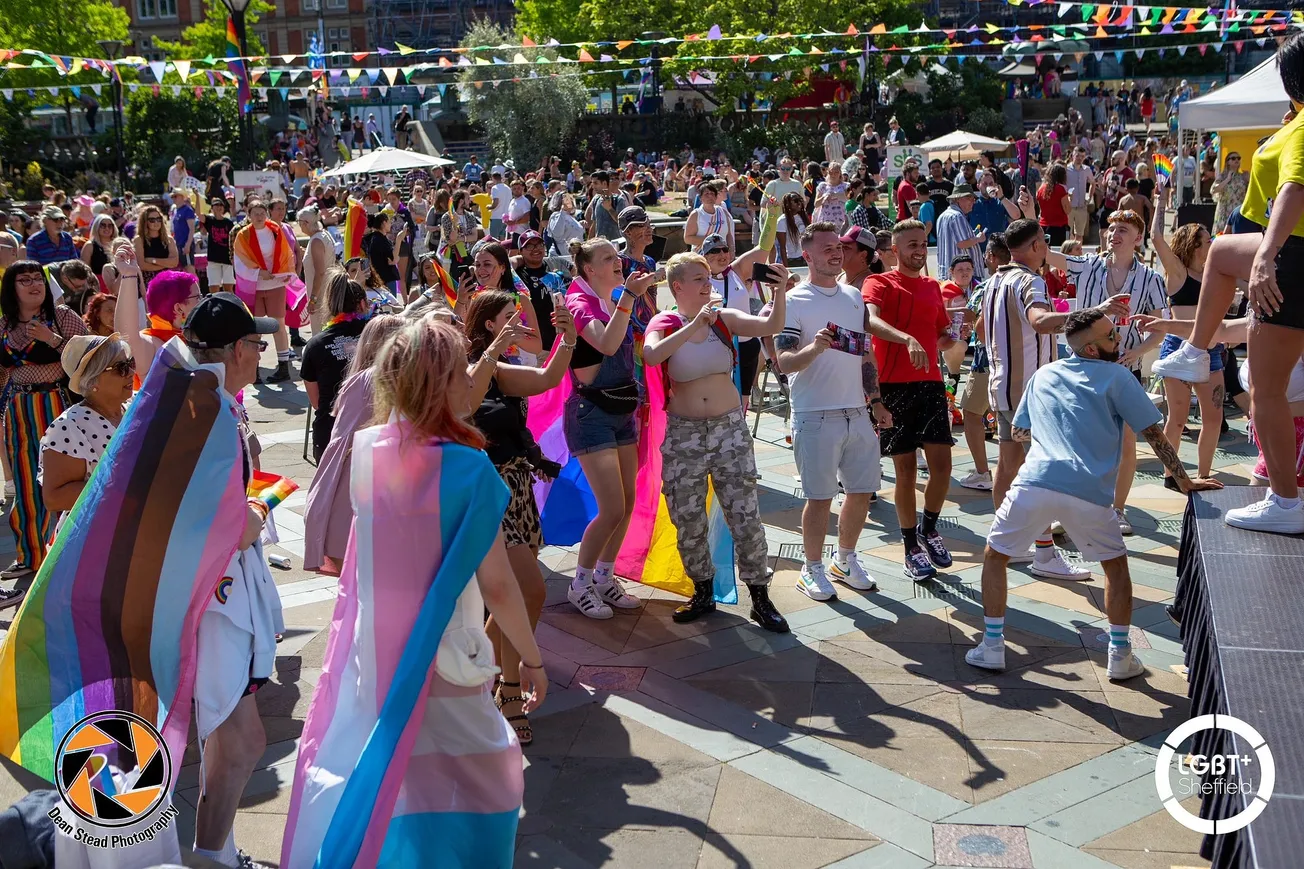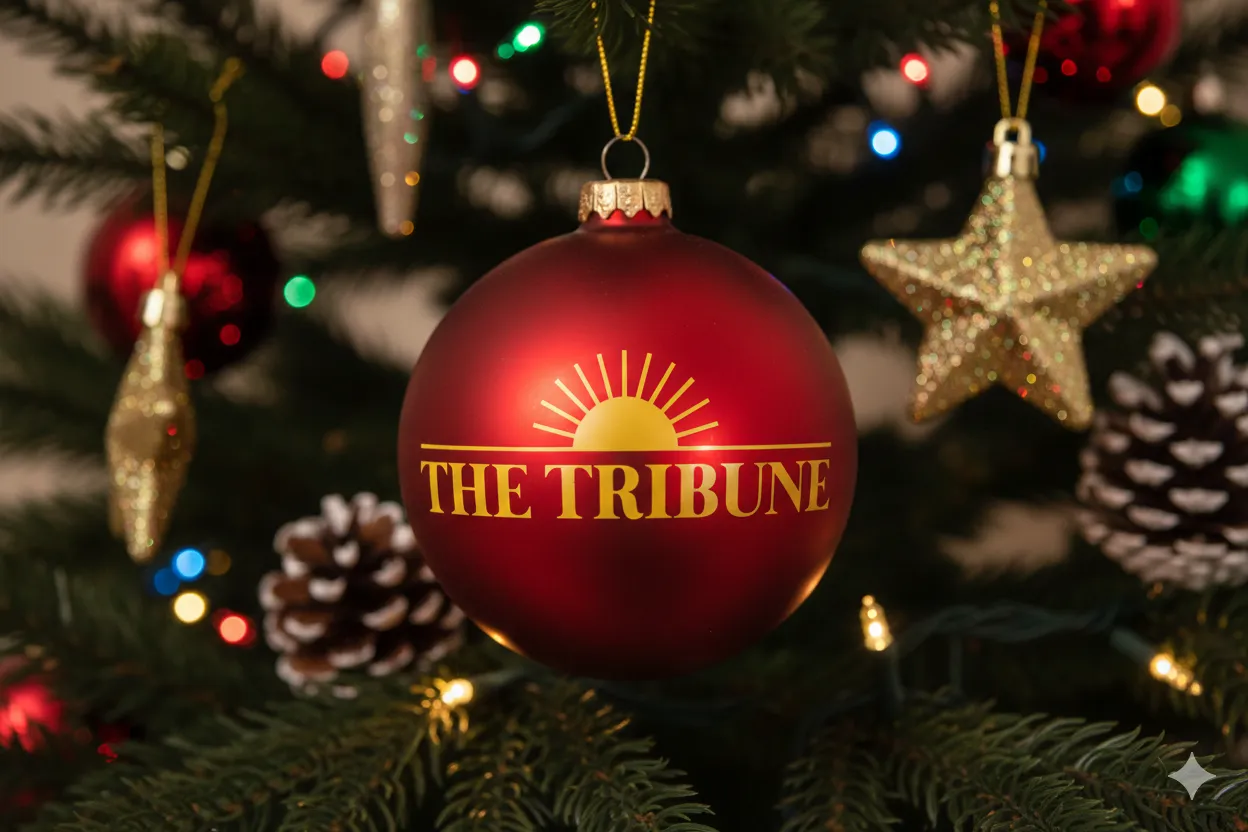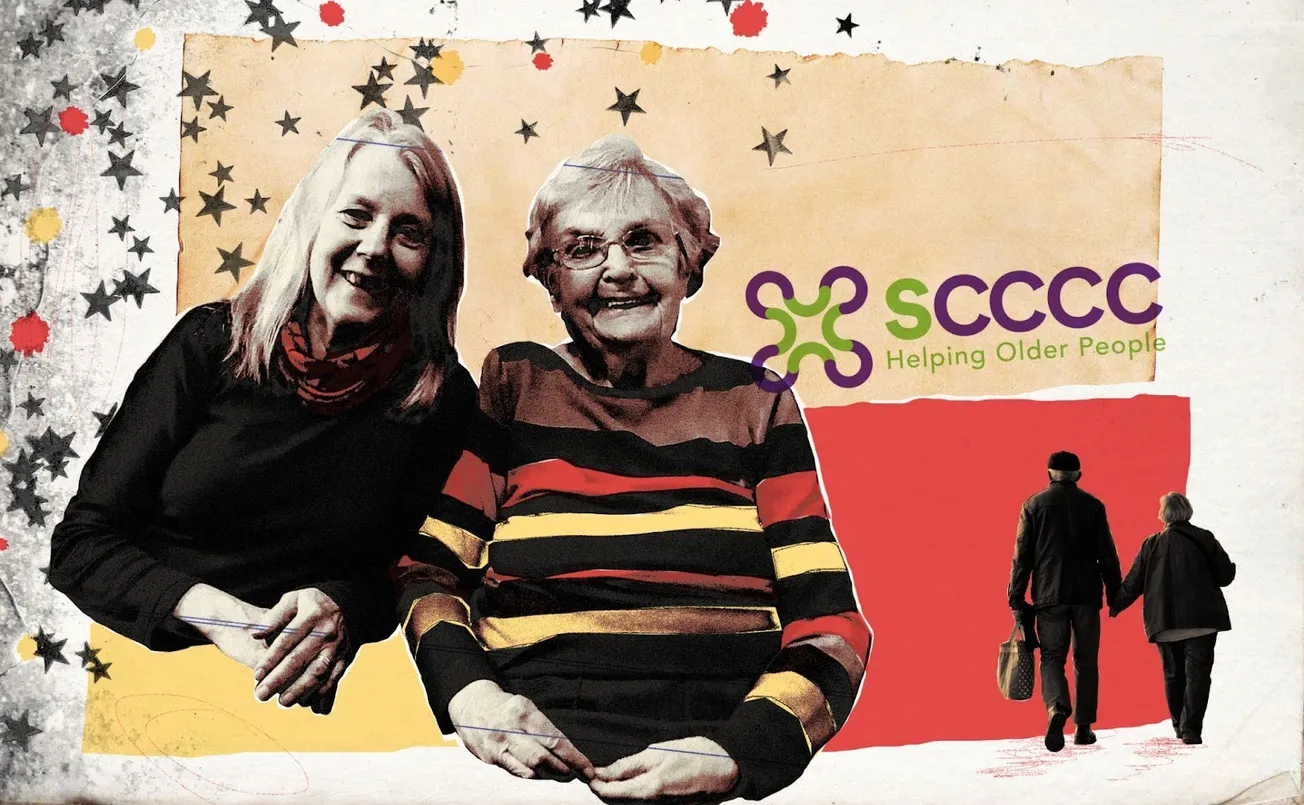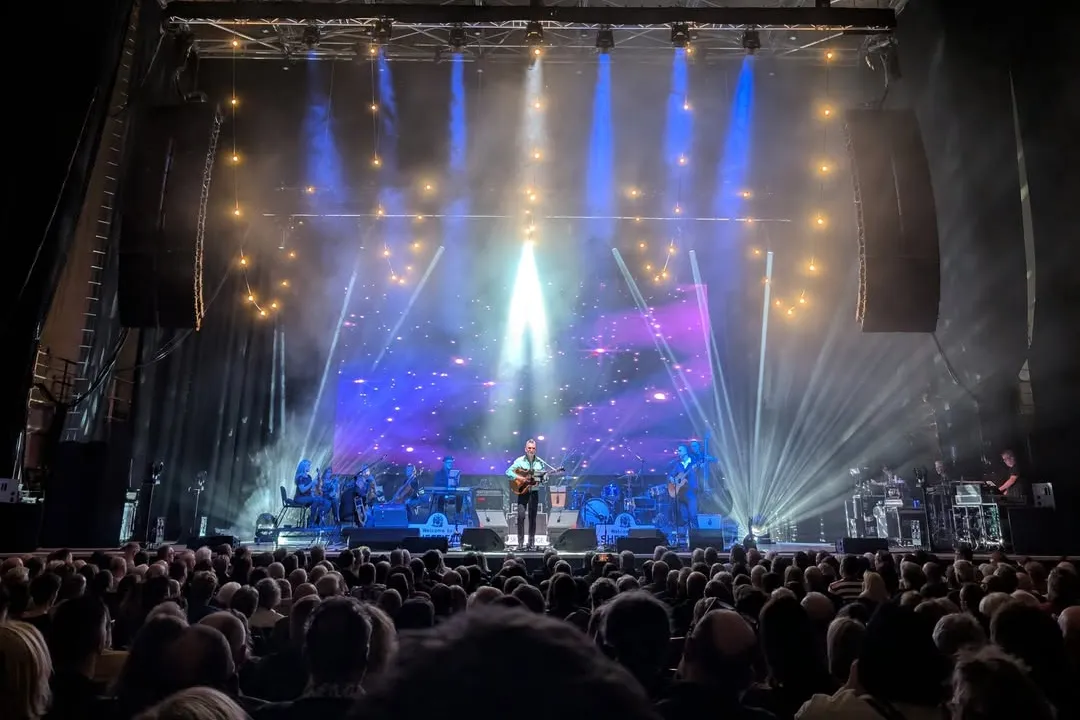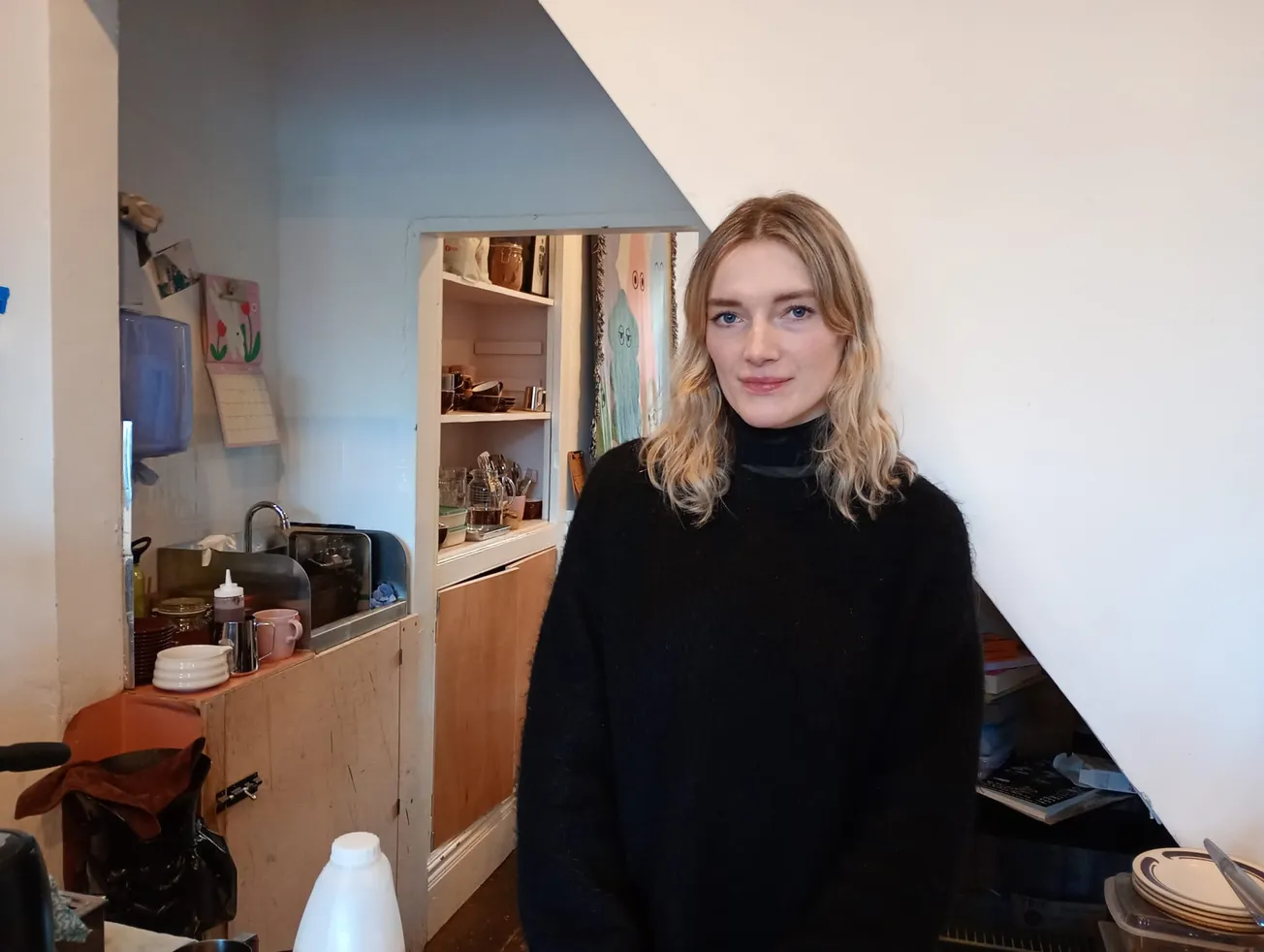Five years ago, Sheffield Pride held their tenth celebration of the city’s LGBT+ community and it was their biggest ever. Since the first event in Sharrow Cemetery Park back in 2008, attended by around 4,500 people, it had grown into a huge parade down Ecclesall Road, attended by more than 16,000.
What brought it crashing down, only a month later, was a storm of outrage set off by a single tweet, criticising the organisers for banning “offensive” signs and describing the event as “a march of celebration not protest”. Following a backlash, the entire committee resigned in one swoop, heartbroken by "demoralising and unhelpful comments" and wishing "whoever takes over well". Since then, the official PrideSheffield Twitter handle appears to have been taken over by a Brazilian K-pop fan.
The following year, there was “Pride in Sheffield”, organised by a new set of volunteers. Then, of course, there was Covid-19. But since lockdown restrictions eased and other Pride celebrations roared back into life, there has only been one attempt to organise a Pride for Sheffield, last year, which appeared to flounder after two organising meetings. Last summer, Sheffield City Council passed a motion in support of “Sheffield holding an annual Pride event going forward”. It’s hard to believe that a city with more than 22,000 LGBT+ people, according to the 2021 Census, doesn’t have a single celebration.
Sometimes when things seem unbelievable, it’s because they are. While it’s true that Sheffield doesn’t haven’t a single, official Pride, what it does have this year is two unofficial ones. Pinknic and Sheffield Radical Pride, taking place on 15th and 22nd July respectively, are both Pride alternatives seeking to uplift the community, albeit with very different ideas of what that community needs.
Kathryn Housley, a 67-year-old gay woman and one of the founders of Pinknic, said it began in 2013 due to a schism within the committee of the official Sheffield Pride. “There was a disagreement over the route we were going,” she recalls, “Some people wanted to make it a more commercial, alcohol-fuelled event and a couple of us didn’t want that, so we just resigned.” Pinknic has outlasted its predecessor to become Sheffield’s “longest-running LGBT+ event” and takes the form of a “unity march”, followed by an event with stalls and live performances in the city centre’s Peace Gardens. A post on its official Facebook page yesterday described how attendees “will be using the power of positivity and love to invite the community allies [sic] to join us”.

What the event’s founders wanted was something fun – something “family-friendly” and safe. Kath, a mother of two and grandmother of four, describes her ideal as “a good afternoon with kids running around”. The Peace Gardens, other than being an appropriately-named setting for such a cuddly event, are perfect for a variety of reasons. The square’s central location attracts curious passers-by, so Pinknic can raise “awareness outside the LGBT community”, while the fact it is private land means security can refuse access to members of homophobic groups that have targeted the official Sheffield Pride in previous years.
While the event has “never had any problems” so far, Kath is under no illusions that this is because homophobia has vanished from Sheffield. Despite growing up in a time when you “never heard the word gay or lesbian” (“back in them days, we didn’t know it existed, being gay,” she adds), she feels attitudes towards the community have only changed “a little” in the decades since. “The older generation hasn’t [changed], people on the street haven’t. I’ve got gay men friends who are constantly abused in the street, shouted at, called names or beaten up. And the trans community has had a horrendous life.”
It’s because of this potential threat that she’s happy South Yorkshire Police “are really big supporters of Pinknic”, adding that they run their own stall and “help make it a safe event”. While she recognises “everybody’s got different opinions,” and notes there’s lingering resentment over the way local police handled homophobic abuse during the 2016 Sheffield Pride, she’s ultimately “not a political person,” adding: “I just think we don’t need to be enemies.”

The organisers of Sheffield Radical Pride couldn’t disagree more. The “queer grassroots group,” – largely made up of people in their late teens and early twenties – formed this year to create an event that is “more accessible, by being free of police and corporations”.
“We just kind of realised Sheffield has not had a Pride since Covid-19 and there needed to be something,” says Charlie (not their real name), a 20-year-old student who is non-binary and bisexual. They never attended any of the city’s previous iterations of Pride, although they’ve been “involved in the queer scene, queer activism and other kinds of activism,” for the last few years. “I don’t really feel like there was a place for me there, it felt like a commercialised party for the police and for the state and that’s not somewhere I want to be.”
Charlie is clear there’s “no hostility” between Radical Pride and Pinknic – “there’s definitely space in the city for other kinds of events” – but says their group is “trying to put on a protest Pride”, more in keeping with the spirit of the Stonewall Riots that Pride was created to commemorate, which were a direct response to a police raid of the New York City gay bar Stonewall Inn. While they share Kath’s concern about homophobia in Sheffield, saying they have been “shouted at, even barked at, just for being visibly queer, by randoms on the street”, the presence of police does nothing to make them feel more safe. “There are people who wish to do us harm and we need to protect ourselves from them - because the police won’t.”
“South Yorkshire Police do not protect queer or working-class people in this city,” says Charlie, citing complaints made by city centre gay bar Dempsey’s that the force failed to support its staff in the face of homophobic attacks. Charlie hasn’t personally had any negative interactions with South Yorkshire Police but suspects that’s because they’re white, as “racialised communities experience the brunt of policing”. When it comes to working with the police, they concede: “You might get minor wins, and I don’t begrudge anyone for trying to get those, but ultimately they are a tool of the state and that state wants to oppress us.”

When contacted for comment by The Tribune, Superintendent Benn Kemp from South Yorkshire Police said the force “understand[s] the reasons why some members of the LGBT community in Sheffield have negative views of the police,” and has “taken significant steps in recent years to build our relationship[...] and better understand the needs of the community”. This includes “training for staff around issues affecting the LGBT community, as part of our commitment to learn more,” he said, adding: “Our LGBT community can be assured that, if concerns are raised with us about reports of hate crime against them, then we will always respond promptly and appropriately.”
It’s not just their feelings about the police that divide Kath and Charlie; while they are both part of the wider LGBT+ community, they are, in many ways, polar opposites. Unlike Charlie, Kath didn’t come out until her late 40s. “Because of my age, I didn’t know,” she says, explaining that, in her youth, “if you did think ‘she’s nice’, you didn’t think there was something wrong with that… [but] you had no idea where to go or what to do about it.” While Charlie “would say the [queer] community is strong” in Sheffield, adding that it “feels quite radical”, Kath feels there’s “not much of a gay scene in Sheffield, which is absolutely diabolical”.
“We’re the fifth largest city in the UK and we’ve only got one gay bar,” she says, referring to Dempsey’s, “There’s no visibility anywhere in Sheffield that says this is a gay-friendly city. Everybody jumps on the bandwagon in Pride month - even Marks & Spencers are selling sandwiches wrapped in the Pride flag - but then there’s just nothing.” What worries her most about this is the impact on older LGBT people, who “may have been ostracised when they were younger, might not have had kids, their partner might have died”. Kath’s partner of 23 years died in December and, while organising Pinknic “fills the gap” now she’s on her own, she feels fortunate to already know like-minded people. “If I didn’t, where would I go? I just despair.”
The worst part, she feels, is that Sheffield is shooting itself in the foot. “This city is losing out on so much money, the pink pound, because every weekend people are leaving to go to Manchester or Leeds for the gay scene we just have not got here,” she says. Charlie, for their part, is unbothered by the fact that there’s not “a bunch of privately-owned gay businesses to try and take our money” in Sheffield. “We’re not looking for ‘rainbow capitalism’. We’re looking to build a queer grassroots.”

The protest later this month is only the second ever organised by Sheffield Radical Pride, after an event to mark Transgender Day of Visibility earlier this year. This earlier event clashed with a football game, meaning South Yorkshire Police largely left them alone, but Charlie is hoping that they will still be afforded “their right to freedom of assembly and protest” this time around.
When it comes to Pinknic, one of the few things that could threaten it after ten years seems to be its own success. The Peace Gardens are “only supposed to hold 4,000 people” but, last year, police estimated around 6,000 attended throughout the day. If the event gets any bigger, it will have to find somewhere else. “We have just not got the money to do that,” Kath says.
And what of the long-awaited return of the city’s official Pride? When The Tribune asked the council about its promise last year to support the event in future, they sent a statement from councillor Martin Smith, who suggested the council’s support of Pinknic “forms part of [its] commitment to fund a Pride event”. As far as he’s concerned, Sheffield Pride is an “independent organisation” who have “made the decision not to run the event” for some years.
After the dramatic collapse of the 2018 Pride – and given that organising even a smaller event like Pinknic is a “full-time job” at the moment – it seems unlikely anyone will step up to the plate. That’s the real problem, Kath says: “Everybody wants to attend, everybody wants a Pride, but nobody wants to organise it.”
Comments
How to comment:
If you are already a member,
click here to sign in
and leave a comment.
If you aren't a member,
sign up here
to be able to leave a comment.
To add your photo, click here to create a profile on Gravatar.


